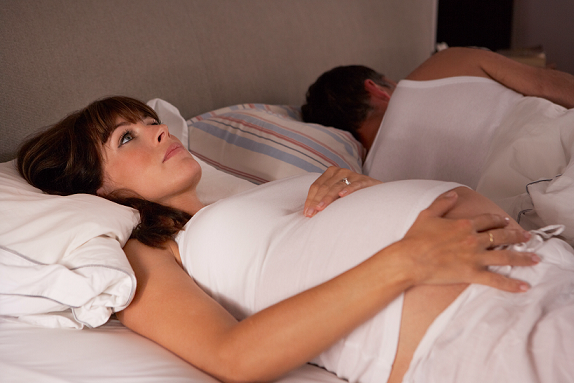Anxiety During Pregnancy
With so many things going on during your pregnancy, it is not uncommon that some women experience Anxiety during pregnancy. In fact about 20-30% of women may experience some form of anxiety during their pregnancy.
This post is brought to you by VSacharMD.com The world’s first and only cosmetic company devoted to safe, non-toxic cosmetics for pregnancy. Toxin exposure during pregnancy is a real concern, and can place your baby at risk for future diseases such as cancer, diabetes, and more.
What is Anxiety Disorder?
Anxiety is a common phenomenon among during pregnancy and among new mothers too. Many physicians consider anxiety during pregnancy to be a normal phenomenon. This may manifest with racing thoughts, insomnia, and mild depression. For some women, this normal anxiety can escalate and can become an anxiety disorder. Anxiety disorder is severe enough to cause you distress and interfere with your daily ability to function

Insomnia during pregnancy may be a sign of anxiety
socially. It is estimated that about 5% to 16% of women suffer from anxiety disorder either during pregnancy or postpartum.
Anxiety during pregnancy can range from normal worry and anticipation to severe incapacitating fear. Many symptoms do not meet formal diagnostic criteria but definitely affect their ability to function normally. Not much is known about the complex interplay of factors involved in the development of anxiety disorders during pregnancy and not many obstetricians screen their patients for anxiety disorders.
History of anxiety in the past is the single-most best predictor of anxiety during pregnancy. Factors like perfectionism and the desire to become a supermom may contribute to the development of anxiety disorder during pregnancy. Life experiences such as frequent miscarriages, separation, loneliness, and other impactful life events may also lead your way to anxiety disorder and depression.
How it affects Pregnancy
Anxiety disorder may seriously interfere with your day-to-day activities during pregnancy. Your risks of developing postpartum depressions are three times higher with a history of anxiety disorder. Anxiety regarding pain involved with vaginal delivery may play a role in some women requesting a primary cesarean section. Women with anxiety may have more physical complaints compared to other pregnant women and chances of developing posttraumatic stress reactions are higher after childbirth.
How it affects Mom & Baby
The impact of mental health disorders on the fetus are just beginning to be understood. Anxiety disorder in mothers are associated with an increase in the risk of preterm birth, low birth weight, low APGARS in the newborn. There are also long term infant outcomes associated with maternal stress and anxiety. These include increased baby fussiness, problems with attention, emotional reactivity, as well as lower scores on measures of mental development. Postpartum anxiety and depression may also play a role in inhibited
mother-baby bonding.
There are no direct maternal-fetal neural pathways between mother and baby. Maternal anxiety is believed to affect baby through stress hormone interactions that can affect neural pathways in the developing baby.
Treatment
Where once anxiety was considered chronic and untreatable, there are now some effective forms of anxiety treatment. Cognitive behavioral therapy (CBT) is a form of psychotherapy that can have some reduction in maternal anxiety. Relaxation techniques have also been shown to significantly reduce anxiety during pregnancy. In addition, giving women information about anxiety and management strategies for self-management have been found to be effective. The best advantages of cognitive behavioral therapy that it does not include any medications. However, medications such as antidepressants and anti-anxiety medications are also used sometimes as CBT may not be a viable option for all mothers because of time and insurance constraints. A combination of CBT and medication can also be used to treat anxiety disorders. These therapies complement each other and effective in result. For women experiencing mild anxiety during their pregnancy but who do not wish to seek treatment, exercise is an excellent modality to help stabilize stress hormones. This alone or in combination with stress reducing teas, meditation and other medications may be sufficient to help pregnant mothers experiencing stress, and anxiety during
pregnancy.
This post was presented to you by VSacharMD.com The World’s first and only cosmetic company devoted to safe, non-toxic cosmetics in pregnancy. Toxin exposure in utero is associated with adult diseases as the child grows such as cancer, diabetes, and more. Prevent exposure to toxins by using safe, non-toxic
cosmetics.
Copyright 2014 V Sachar MD. All Rights Reserved.



